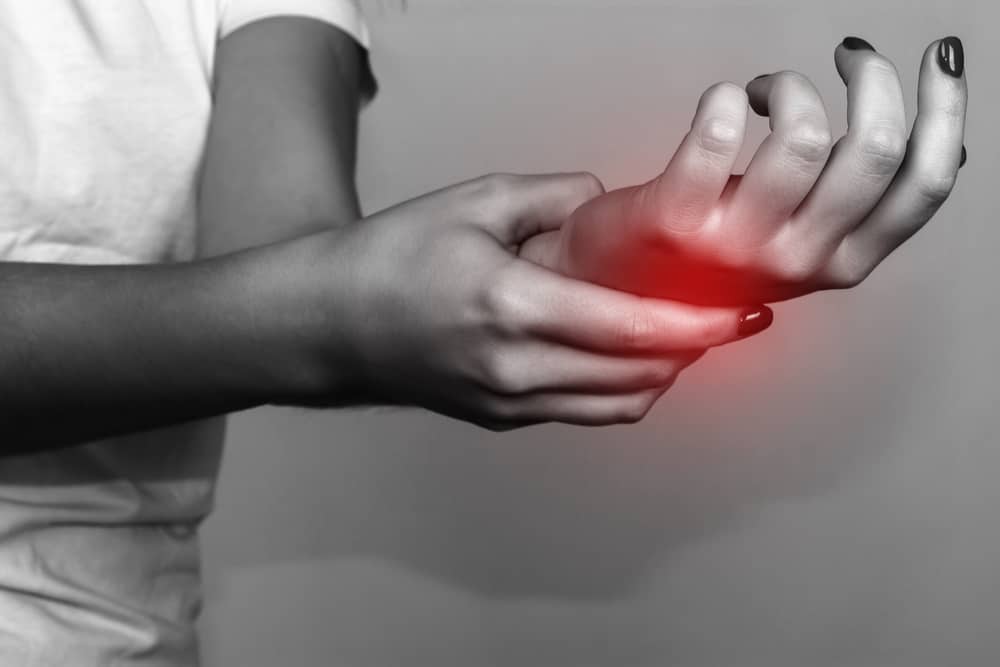Repetitive stress injuries such as wrist tendonitis are quite common, especially in labor-intensive professions.

Tendonitis of the wrist is also an injury generally covered under New Jersey’s workers’ compensation laws. The reality is that many industries, particularly manufacturing and industry jobs, require a great deal of repetitive physical activity. These activities could result in work-related injuries that create stress on body parts that are heavily involved in completing certain job duties. As a result, filing for workers’ compensation could be a possibility depending on your scenario.
Despite its commonality, however, employers and workers’ comp insurance companies might contest or deny an award of benefits for work-related wrist tendonitis or carpal tunnel syndrome. Why? Well, because the specific cause of the injury is often difficult to prove and the long-term nature of repetitive stress injuries makes it difficult to associate the injury specifically with a workplace activity.
That said, if you or a loved one developed wrist tendonitis, from a work place accident in an industry performing manual labor or doing work-related activities involving substantial use of wrist muscles causing nerve damage, you might have a claim for workers’ compensation benefits.
Why We Have Workers’ Compensation Laws
The workers’ compensation laws are intended to help provide money to employees who suffer workplace injuries. Workers’ compensation is designed to help provide medical care to employees and provide a temporary source of income for injured employees who cannot work. Workers’ compensation is a specialized form of law in New Jersey and is distinct from bringing a lawsuit in court. As distinguished from an ordinary lawsuit, a workers’ compensation case is designed to move through the administrative appeals system quickly to ensure that injured employees receive immediate relief from their injuries.
If you were hurt at work or believe that a work-related activity may have caused a repetitive stress-type injury, you should contact a workers’ compensation lawyer. Due to the specialized nature of workers’ comp law, it is essential to have talented, skilled, and experienced legal counsel to help guide you through the process. It could be a complicated process and should have professional assistance along the way. Especially, when it comes to exploring whether suing your employer for the cause of the injury is a possibility.
What is Wrist Tendinitis?
Wrist tendinitis is generally considered to be inflammation of the wrist muscles due to repetitive motion. One particularly common type of wrist tendinitis is carpal tunnel syndrome, which can occur due to repeated lifting or fast-paced shaking motions using the wrist, fingers primarily, and lower arm to facilitate the movement.
Specific activities make it more likely that an employee will result in end up with these sorts of wrist injuries. For example, the following occupational tasks cause pain occurring in the development of a repetitive strain injury, such as wrist tendonitis:
- Typing;
- Cooking duties (pan shaking and stirring);
- Playing a musical instrument;
- Sports (the development of tennis elbow can occur);
- Hammering and other manual construction-type work;
- Drawing, painting, and handwriting; and
- Performance of surgical and nursing procedures.
Most wrist tendonitis injuries will cause pain and result in reduced hand and wrist mobility that prevents you from performing ordinary everyday tasks. More severe cases of wrist tendonitis can result in loss of feeling in the fingers, chronic pain, reduced strength, and an inability to hold certain objects for even short periods of time.
Depending on how severe the condition can become, wrist tendonitis can be either simple or complex (or impossible) to repair. For mild tendonitis cases, rest and physical therapy will adequately treat the issue, though the injured employee may remain at risk of suffering future pain. Anti-inflammatory medication is also regularly prescribed for such cases.
In more severe cases, however, wrist splints, regular and continuous physical therapy sessions, and even surgery may be required. Regardless of the severity of the injury, a recovery period will generally be necessary, which will necessitate at least some missed working days.
Wrist Tendonitis Cause Disputes
While wrist tendonitis and its variant forms such as carpal tunnel syndrome can be identified and diagnosed by a medical professional, getting coverage through the workers’ compensation system can be challenging. To secure compensation for lost wages and the cost of medical bills, the injured employee must prove that a workplace activity caused the injury. Employers and insurance companies regularly dispute the cause of wrist tendonitis.
By its very nature, wrist tendonitis is a repetitive stress injury, which means that while there may be just one cause of the injury, it is also possible for multiple different stresses to contribute to the damage. For example, assume that an employee works two full-time jobs: one as a typist in an office building and another as a violinist in the local symphony orchestra.
Both of those jobs place this hypothetical employee at risk for carpal tunnel syndrome, but it would be difficult to determine whether the typing or the violin playing was the primary cause of the injury. In reality, it is likely that both activities contributed to the damage to some extent.
This causation problem creates an opportunity for employers and insurers to try and avoid liability if they can point to some other possible cause for wrist tendonitis.
How to File a Claim for Wrist Tendonitis Workers’ Compensation
The first step in filing a claim is to report your injury to your employer as soon as it gets diagnosed. Waiting to file a workers’ compensation claim with your employer could create problems later because your employer can claim that the injury was not work-related.
While employers and insurers often contest these types of claims, it is possible that alerting an employer early while the damage may be considered minimal could make it more likely that you will be able to secure benefits without significant pushback from your employer. Waiting until the condition is more severe and requires more extensive care could make an employer or insurer more likely to contest your claim.
Next, you should consult with a treating physician. Not only is securing your medical recovery important, but you want to find a doctor you like. Often, once the claims process begins, employers and insurers will recommend doctors to you; however, those doctors tend to be biased toward insurance companies if they are called to testify. Under New Jersey’s workers’ compensation laws, you have a right to choose your physician, and you should exercise that right.
If you decide to keep working, you should also keep a record of any manual work-related tasks that could exacerbate your condition. Keeping an evidentiary record such as an injury log as well as a file with your medical costs, medical expenses, and listed medical treatments can help make your claim easier to prove later. At the very worst, an injury log can help dispel the notion that some other actions caused you to file an injury claim.
Finally, you should seek out an experienced workers’ compensation law firm with a reputable workers’ compensation attorney. Represented injured employees are far more likely to recover fair and reasonable settlements that meet their needs compared to unrepresented parties.
The experienced and skilled work injury attorneys at The Law Offices of Craig A. Altman are ready and able to assist you in your time of need. We have a deep understanding of the complexities associated with New Jersey workers’ compensation law. Contact us by filling out our form or by giving us a call today at (856) 327-8899!





